Four Police Brutality Reforms to Focus On: A Libertarian Take
It's going to take a while.
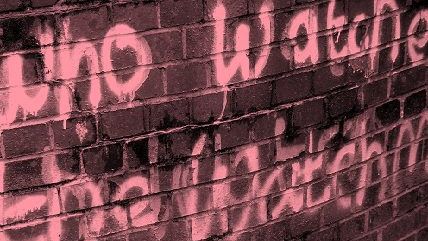
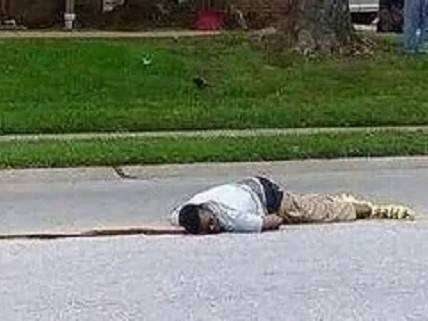
The killing of Michael Brown in Ferguson, Missouri, last month by Officer Darren Wilson led to weeks of protest, a militarized police response to early reports of rioting, and a "national discussion" about police militarization, racism, and police brutality. The police killing of Michael Brown was not unique. Although comprehensive statistics are not available, at least 387 justified homicides by cops were reported to the Bureau of Justice Statistics (BJS) in 2010, while 2,958 people were killed by cops between 2003 and 2009, according to the BJS' Arrest-Related Deaths report. The BJS defines arrest-related as a situation in which police are detaining or restraining an individual. Although the BJS notes its numbers are incomplete, it says the data breakdown is representative of the nature of arrest-related deaths, if not the volume. Seventy-five percent of arrest-related homicides by cops are of suspects in violent crimes, while 14 percent are of suspects in property, public disorder, or drug crimes. Some 1.6 percent of homicides occur when no charge was intended, and for 9.2 percent a charge isn't reported. The BJS also offers a demographic breakdown: 95 percent of victims of homicide by cop are men, 42 percent are white, 32 percent are black, and 20 percent are Hispanic.
The problem of police brutality—often shaped and directed by racism and class distinctions—also cuts across American society. It's not just a problem in Ferguson, where Brown was shot and killed on Saturday, August 9th, or in Los Angeles, where Ezell Ford was shot and killed on Monday, August 11th, or San Jose, where Diana Showman was shot and killed on Thursday, August 14th, or in Ohio where John Crawford was shot and killed Tuesday, August 5th. While police work will always include the possibility of justifiable homicide by cops (short of an absolute prohibition), there are policy reforms at the local, state, and national level that can help create a system of accountability that doesn't produce Soviet-style percentages for justified shootings and that restores trust in police forces through robust disciplinary and oversight processes in police departments. There are other reforms that can limit the kinds of engagements police are permitted, ordered, and even required to have with the public. It will require a longer attention span than any one police brutality story, no matter how awful, can maintain. Here are four issues police brutality-oriented policy reform should address
1. Body cameras and other surveillance of police
After the killing of Michael Brown, the police chief told a local television station the department had body cameras that hadn't been deployed yet. Now the police department says it's going to raise money for body cams and dash cams (!) as part of an effort to rebuild trust with the community. The lack of dash cam is particularly disturbing—one study found dash cam video exonerated cops in 93 percent of instances, something Reason science correspondent Ronald Bailey mentioned in a 2013 column, "Watched Cops are Polite Cops." Bailey explained that while body cameras are an important tool, certain policies should be put in place to make them effective—ensuring they are on when they need to be and that the privacy of people being recorded is protected, for instance.
Body cameras have gotten a lot more airplay since the events in Ferguson became national news, but the fact that they haven't yet been universally adopted points to more systemic problems that need to be addressed.
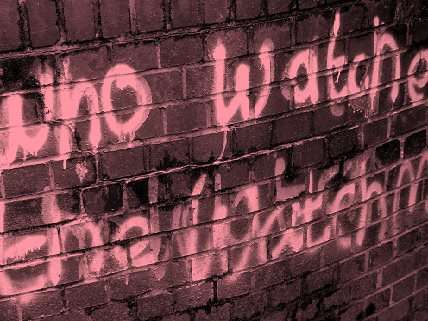
2. Police oversight
Over the last decade, the Department of Justice has investigated and monitored more than a dozen police departments around the country and in Puerto Rico, most recently in places like Albuquerque and Newark. However, federal measures are often opposed by police officers and their unions. In Seattle, cops argued the mandates effectively infringed on their (no joke) Fourth Amendment right to reasonable searches and seizures, a lawsuit even the Seattle police union couldn't get behind, although the one in Albuquerque appeared interested.
Independent oversight is one of the first components of any police reform, largely because it works to restore trust in a police system that is often insular and resistant to criticism and responsibility for wrong doing, as Walter Katz, a police oversight lawyer in southern California, explains. "Starting at having civilian oversight is a critical component" of any reforms, he told Reason. "Use of civilian oversight is a way of enhancing transparency, and by virtue of transparency then also accountability."
When they are effective, civilian oversight boards can be attacked by police unions. When the Police Advisory Commission in Philadelphia asked cops to apologize to citizens who have complained of mistreatment, the Fraternal Order of Police sent them a letter claiming the commission was trying "to further weaken and demoralize the Philadelphia Police Department in a time of crisis with a significantly growing crime problem in this City. The danger your policy poses to our citizens is both reckless and inexcusable." When asked about the letter, the commission's executive director called it not factual and said he wouldn't engage it.
And while police may not see civilian oversight agencies as "understanding" police work, residents may also accuse agencies of being rubber stamps. "Civilian oversight also has to meet that challenge of accusations," says Katz. "Effectiveness is not easy. We can look at an oversight agency and ask have they been effective in reducing force or increasing transparency?"
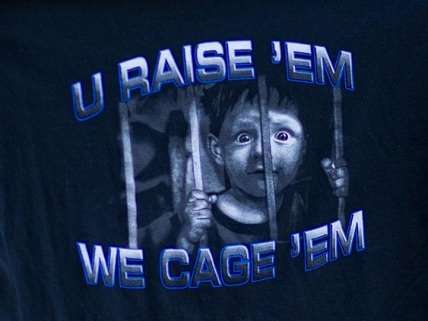
3. Police unions
Katz believes unions can and must be brought on board for reforms. "Police reform is effective when all the stakeholders buy into it," he says. "Often it's not a matter of policy, it's a matter of culture, and those cultures are built over a long period of time." Numbers like the 93 percent of officers exonerated by dash cam footage point to police reforms working for cops, too. Body cams lower the incident of police brutality complaints because it discourages cops from acting badly and residents from filing false complaints.
The Cato Institute's Walter Olson, who runs the legal blog Overlawyered.com, isn't as optimistic about unions, however. "Police unions are central to the problem," he told Reason. "Their ideas of due process for officers accused of wrongdoing often prevent the removal of cops who are a menace to citizens' rights, municipal liability budgets, or both." Olson points out that police unions operate like other public unions: "They are often found resisting efforts to reduce waste, featherbedding, and even corruption. When they obtain bargaining rights over the effects of policy changes they acquire enormous leverage over everything from equipment choice to rules for citizen-police interaction." That police unions produce rules that protect bad actors, then, is a feature not a bug.
The problem of police unions preventing reform can be seen in places like Philadelphia, where the city's police commissioner, Charles Ramsey, doesn't have final authority over employment decisions—a situation many police comissioners and chiefs around the country find themselves in. In Philadelphia, cops have enjoyed protection from termination via "arbitration" since Mayor Frank Rizzo, a life-long police officer and police commissioner, negotiated such a contract with the police department in the 1970s.
Thus while Ramsey has fired 146 cops since 2008 (88 of whom have been charged, and 48 convicted, of crimes such as murder, rape, and extortion), there are plenty of bad apples left on payroll. Meanwhile in places like Hometown, Illinois, where the entire police force is part-time and thus ineligible for Illinois' general civil service employee protections, a cop who shoots a dog in front of a six-year-old on a Friday can be fired on a Monday.
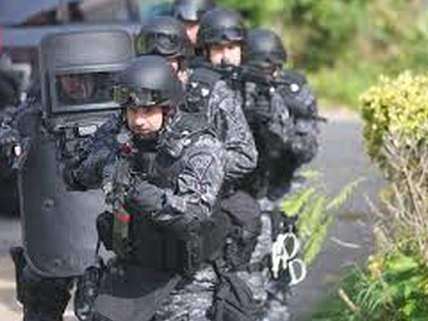
4. The War on Drugs and petty law enforcement
While bad cops and a poisonous police culture play their role in the epidemic of police brutality, so do bad laws. The most obvious are drug laws. As Radley Balko wrote in his in-depth book Rise of the Warrior Cop, though 9/11 may have accelerated the militarization of police officers in America, the trend actually began with the declaration of the War on Drugs in 1971. This has led to the present situation, where multiple raids occur each day across the country, often on drug-related warrants. Such operations introduce violence to combat non-violent narcotics use and sale associated with violence only because of the laws criminalizing it.
As Jacob Sullum explained in a column last week, "The Literal War on Drugs," when it comes to police militarization, the use of SWAT teams is a greater menace than armored vehicles. Indeed, while the daily drug raids around the country produce lots of awful stories, even a baby critically injured by a flashbang grenade used in a raid over a small amount of meth (that wasn't found) doesn't get the kind of attention a Michael Brown story can. The misinformed idea that "drugs are bad" provides cover for bad behavior by cops and ensures that it will continue.
Petty laws play their part in increasing the incidence of police brutality as well. Eric Garner died at the hands of cops during an interaction that began over loose untaxed cigarettes, while a pregnant woman in New York City was put in a chokehold because she was grilling on the sidewalk in front of her house. Mayor Bill De Blasio, who supports New York's status as a sanctuary city, nevertheless insists "the law's the law" when it comes to strict enforcement of petty laws that disproportionately affect poor and marginalized communities. Such laws will always provide excuses for police to confront otherwise peaceful people.


Show Comments (23)